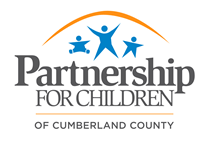The Family Focus Guide helps families and individuals in and around the Fayetteville area find resources in our community.
If you have a service-focused organization that serves families in the Fayetteville, Cumberland County area and would like to be listed, please email us at [email protected].
We serve lunch to anyone in need every day including weekends. Lunch is served from 12-12:30pm. Breakfast is only for our shelter residents.
This organization serves family and friend caregivers, who provide care for a 60+ year old loved one in community setting, and support to 60 year old and older grandparents raising their grandchildren. They oversee funding and programs for informational services, counseling services, respite services, and some supplemental services in an effort to support the informal caregiver.
Provide direct support for families with special needs. Offer specialized in home nursing care and CNA's for high risk obstetrics, postpartum, pediatrics, and adults.
Provides Comprehensive Information and Referral Services for all counties in North Carolina. The service is free, confidential and available in any language.
The NC Foreclosure Prevention Fund helps North Carolina homeowners who are struggling to make their mortgage payments due to job loss or temporary financial hardship, such as divorce, illness, or death of a spouse. The Fund also assists returning veterans who are transitioning to civilian jobs. In addition, the Fund assists homeowners who are re-employed or on a fixed income after an eligible hardship but are earning less and unable to afford their mortgage.
For qualified homeowners, the Fund can pay your mortgage and other related expenses up to $36,000 for a maximum of 36 months.
Provides home visits, infant care, and parenting classes.
The Nurturing Parenting Programs are family-based programs that can be offered in a group setting, in a home-visiting setting, or as a combination of both group meetings and home visitation.[1] Components of the program include 1) developing empathy, facilitating parent-child bonding and attachment; 2) teaching parents appropriate expectations of children’s growth, particularly ways to promote children’s feelings of self-worth, trust, and security; 3) employing discipline that promotes the dignity of children and adults; 4) empowering adults and children to nurture themselves, others, and their environment; 5) promoting positive self-worth; and 6) helping all family members develop a meaningful level of selfawareness and acceptance. Parent education programs that are designed to prevent the development of poor parenting behaviors are short-term, approximately five to 18 sessions in length. Parenting intervention programs are designed to “intervene” to prevent escalation in the early stages of maltreatment. These are generally from 12 to 20 sessions. Parenting treatment programs are designed to “treat” abusive and neglectful parent-child or parent-teen dysfunctional interactions. These are generally 15 to 25 sessions.
The WIC program provides nutrition education and supplemental foods, breast feeding promotion/support to pregnant, postpartum, and breastfeeding women, infants, and children up to age five. Participants must meet residency, income and medical/nutritional risk eligibility requirements.
The Nurturing Parenting Programs are family-based programs that can be offered in a group setting, in a home-visiting setting, or as a combination of both group meetings and home visitation.[1] Components of the program include 1) developing empathy, facilitating parent-child bonding and attachment; 2) teaching parents appropriate expectations of children’s growth, particularly ways to promote children’s feelings of self-worth, trust, and security; 3) employing discipline that promotes the dignity of children and adults; 4) empowering adults and children to nurture themselves, others, and their environment; 5) promoting positive self-worth; and 6) helping all family members develop a meaningful level of selfawareness and acceptance. Parent education programs that are designed to prevent the development of poor parenting behaviors are short-term, approximately five to 18 sessions in length. Parenting intervention programs are designed to “intervene” to prevent escalation in the early stages of maltreatment. These are generally from 12 to 20 sessions. Parenting treatment programs are designed to “treat” abusive and neglectful parent-child or parent-teen dysfunctional interactions. These are generally 15 to 25 sessions.
Plans, adminsters, and advocates services for young children and their families. Provides funding for programs and services for young children under six years of age and their families, and access to high-quality and affordable childcare, health care, and other critical family services.
Friday 8-12 Noon
Prevent Child Abuse North Carolina (PCANC) is the only statewide organization dedicated to the prevention of child abuse and neglect. Through investment in innovative programs proven to prevent child maltreatment before it occurs, PCANC helps North Carolina's communities decrease factors that put children at risk for abuse and increase factors that encourage children to thrive. Through our offices in Raleigh, we serve every community in North Carolina.
Provides teens ages 11-18 who are first-time offenders an alternative sentencing opportunity to repay society for their offenses. Teenagers serve as clerks, bailiffs, and attorneys. Judges and trained attorneys serve as the Teen Court Judges. Teen Court also offers volunteer positions for older teens and young adults.
The S.A.L.T. Project exists to reduce the footprint of trauma on individuals and communities who have experienced, or are still going through crisis. We are Sowing A Legacy Together of G.R.A.C.E. and healing as we provide psychotherapy treatment to people in crisis, develop the next generation of therapists, and supervisors, and supply practical support to under-resourced communities around the world. We believe that everybody should have access to quality mental health care. That is why the S.A.L.T. Project sets fees for therapy based on a sliding scale. Fees are adjusted to the needs of each client based on their income and the size of their household, and can go as low as $5 per session. In some cases, when even a minimum fee may be too much. The S.A.LT project also offers counseling, free of charge.
Through a variety of programs, the agency provides rehabilitation services for individuals with vocational goals who are blind, visually impaired, deaf-blind, or multi-handicapped. Rehabilitation counselors work one-on-one with participants to determine which rehabilitation services are needed for them to become self-sufficient.


